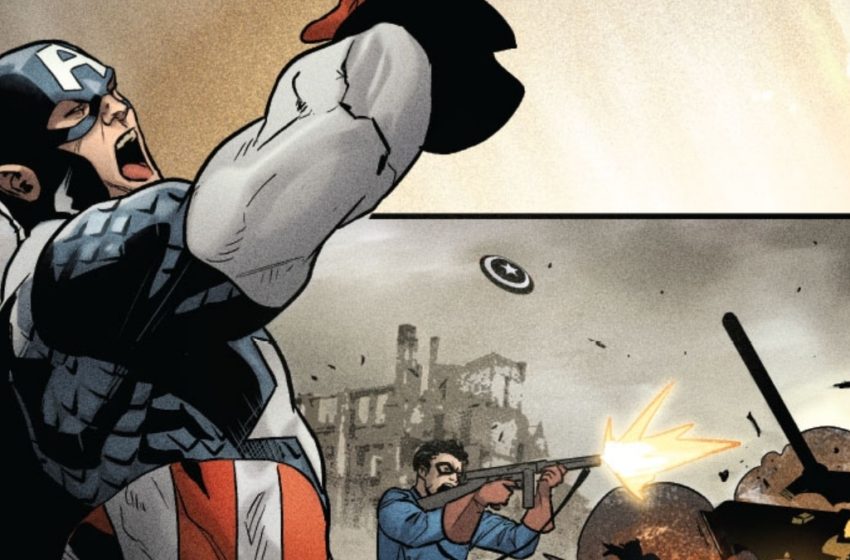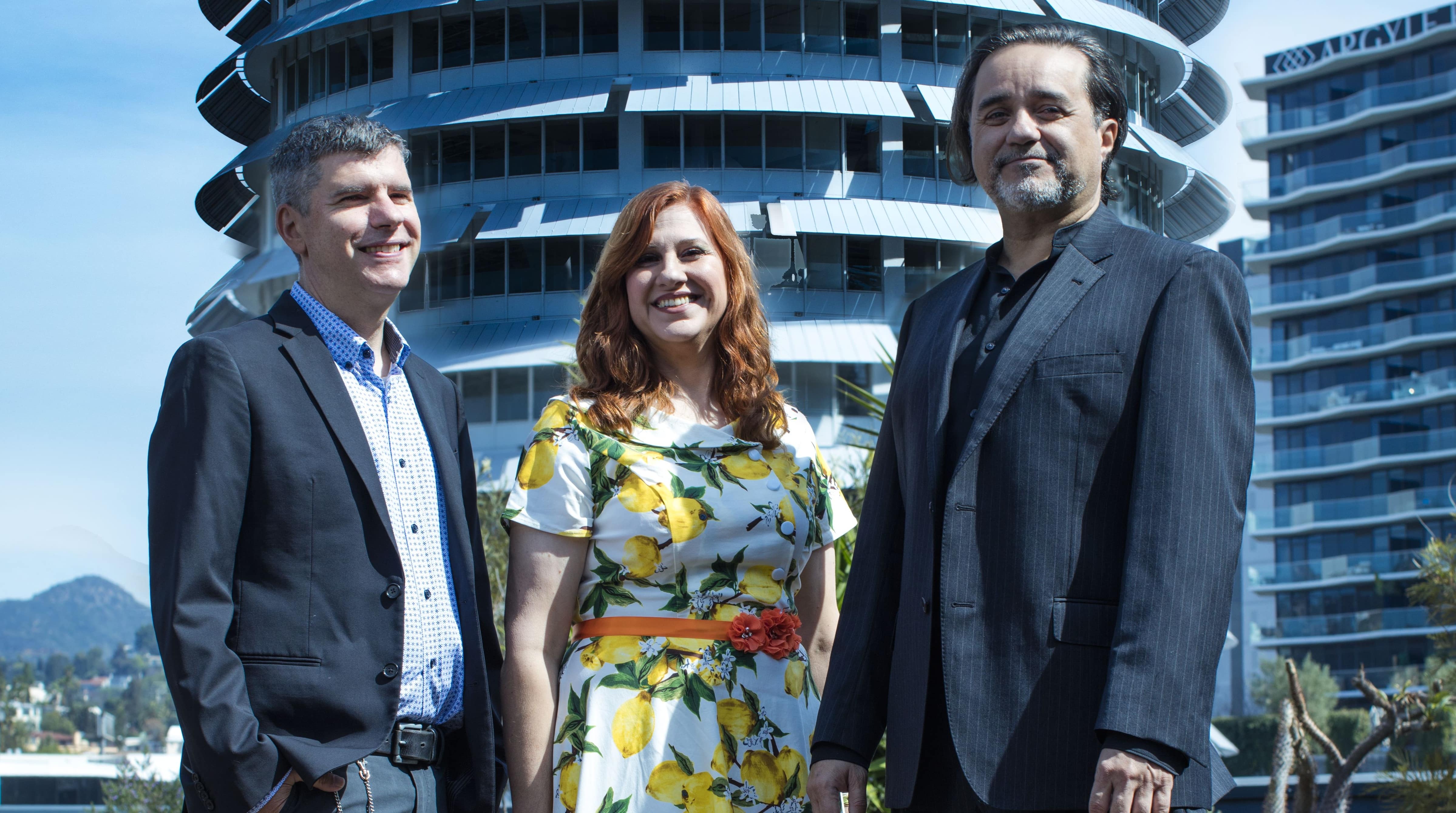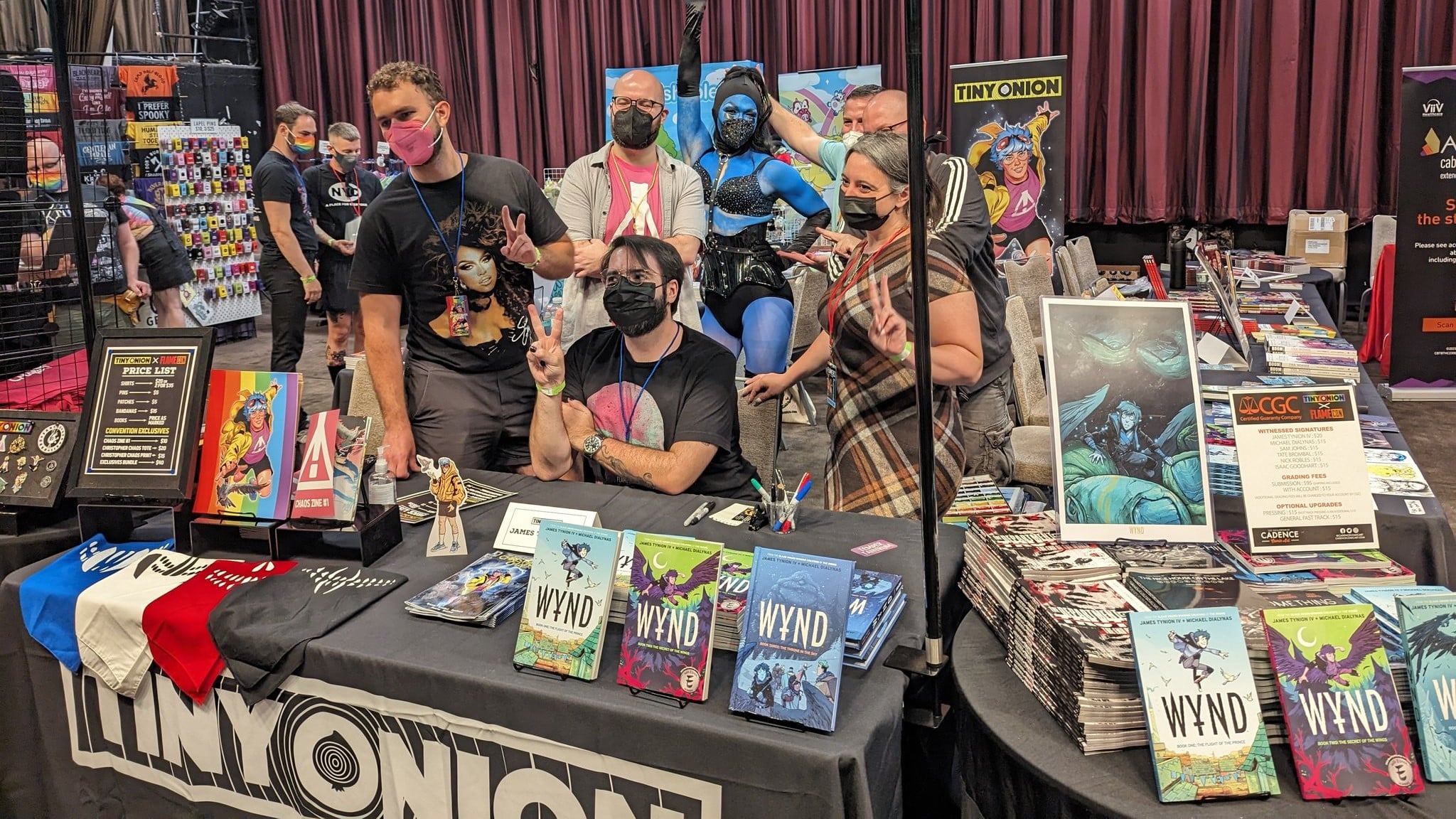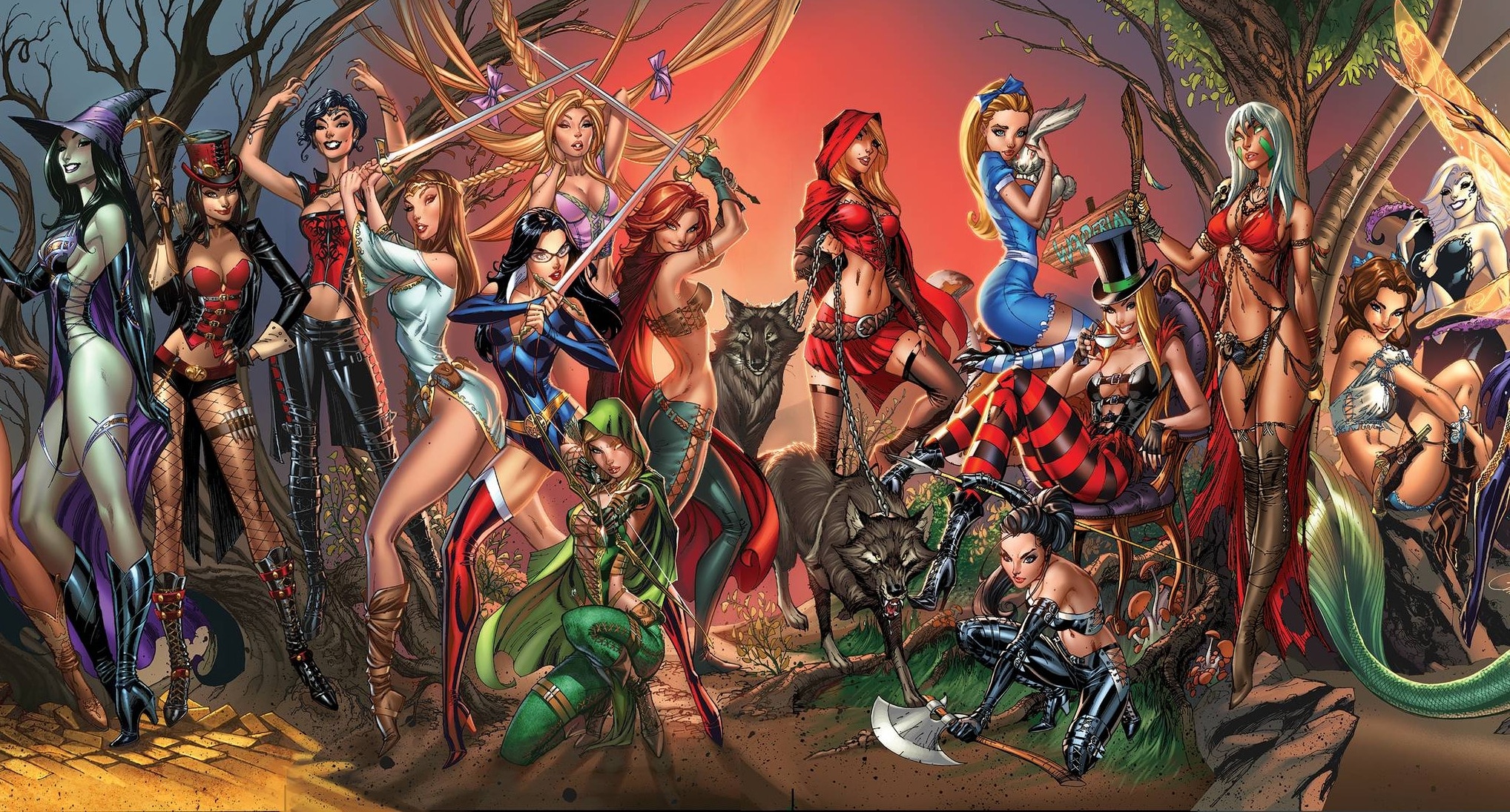Jay Edidin is a writer, editor and podcaster who’s title Captain America Infinity Comic is currently running, exclusively on the Marvel Unlimited platform. He sat down with ComicsXF to discuss tackling the new format.
Zachary Jenkins: Alright. Perfect. So Jay, you are best known for being an X-Pert running the show Jay and Miles Explain the X-Men for seven years now and having published Marvels Snapshots: X-Men last year. So I’m curious, what’s your background with Captain America
Jay Edidin: Minimal thus far. I’m a reader and I enjoy the character, but I never even considered pitching something around him until [editor] Alanna [Smith] reached out to me.
Zachary: With you not being much of a Cap fan, what did you look at in preparation for a pitch like this? How did you get yourself in a space to write a pretty strong Captain America story so far?
Jay: I’m very lucky there. I am not a huge Captain America expert, but I’m married to one. So I’ve been able to pick my wife Tea’s brain on this to get reading recommendations. Alanna also sent me some background material. I asked her a lot about current state of continuity and I’m also pretty familiar with Cap as a character. Although again, he’s not someone I would consider myself a go-to expert about he’s a character who I follow and enjoy. I should say, Steve specifically since there’ve been multiple Captains America.
Zachary: One thing about Captain America, especially with having multiple Captains America is that Captain America is a symbol, which is something that a lot of people have grappled with. At this point, he is the face of the largest media franchise in the world. Him being a symbol is a key part of the story that you are currently telling what, what made that a topic you wanted to wade into and leave your mark on?

Jay: If you read Captain America over the years, one of the things that you see most consistently as a theme is Steve grappling with the conflict between his identity as a person and his identity as a symbol. Sometimes to the point of entirely abandoning one or the other, going full-time Cap, or running off and making himself a V-Neck costume with a cape, going and being Nomad. He’s also a character for whom I think that specific conflict is a lot of fun to explore. Being a symbol of an established order is such a contradiction to so many of the things that Steve Rogers is as a person because he really tends to be really anti-authoritarian. He has a lot of trouble with the idea of things like blindly following orders with a lot of the power structures that he’s part of. He’s always been critical of blind nationalism.
I think to a lot of comics readers who just see the window dressing of what there is to him and a lot of what makes for an interesting story comes from not necessarily points of direct conflict but points of friction. So that seemed like a really obvious direction to explore.
Zachary: Another point of friction that’s in this story is the antagonists. You have Captain America face hard right Nationalists. In a way that more directly references current events than I personally have seen in a lot of corporate comics over the last few years. What made these antagonists a good foil for Cap and the story that you’re trying to tell?
Jay: Oh God. So something I feel like I need to clarify with discussing this is that this is a story that I turned in on January 2nd.
Zachary: [Laughs too much]
Jay: There are a lot of aspects of it that have gone from prescient to uncomfortably prophetic to feeling a little bit dated over that time. That was actually my biggest worry about the delays in it coming out that it was just going to feel super dated and derivative because there was all this stuff that felt like sort of a natural extrapolation, but sort of a kind of extreme a narrative extrapolation of current politics that I put in that ended up happening then in real life in more extreme versions than in the comic. So there was that.
If there’s a real life thing that sparked it, it was the response to The 1619 Project. Specifically the romanization of Colonial America and the roots of America and the idea that to represent it accurately is somehow to delegitimize it. The framers of the Declaration of independence, the framers of the Constitution were overwhelmingly enslavers and supported this incredibly grossly unequal and anti-humanitarian social structure And the tendency to whitewash over that both literally and metaphorically is one that I have really major ethical issues with, for a lot of reasons a lot of which have been stated much more eloquently by other people all over the media for the last several years.

I have the Sons of Hancock, which is like their eighth or ninth name also because apparently there are a lot of real militias, apparently significantly more than I originally anticipated when I wrote this. And a lot of them have the names that you would think would be really obvious And the ones that aren’t attached to militias there tend to be bands with. So, the Sons of Hancock is the seven or eighth iteration of this name. But the Sons of Hancock are based are basically based in the extreme reaction to historical framing and contexts of the colonial era and the ways that that’s intersected with current politics.
Zachary: Moving out from the narrative side and more into the structure of this, you’re working with what Marvel is calling an Infinite Comics format using their Marvel Unlimited platform. It’s a vertical scroll comics, similar to what you might see on platforms like Webtoons or Tapas. You have a history of being an editor for more traditional direct market physical comics, with credits writing those. How does your approach to pacing change when you’re working with this format?
Jay: In most ways, this is a much easier format for me to write for. I don’t know that that’s going to be universal, but for me, one of the hardest parts and one of the parts I wrestle with the most (and one of the parts that I like the most, because I’m an absolute masochist about this stuff) about print comics, is page to page pacing. And that completely goes out of the window as a consideration on this. When I wrote the script I broke them into scenes instead of pages and those are just areas that have consistent setting and characters that I don’t need to, we establish, you know, a lot of new stuff for [artist] Nico [Leon] on. The downside is that you lose a lot of control in this format. You don’t really have the hard stop of a page turn or a page end to hang a reveal on, for instance, so the ways to get around that can be more complicated or it can be just structural shifts.
I really enjoy working specifically on a digital native comic and especially one that I could read digitally because I don’t have a tablet. So anything I read digitally, I’m reading on either a phone or a computer. It’s not a great setup. Because of that, and because I’m a formalist nerd and a cranky formalist nerd, I get very frustrated about the things that get lost in the translation to digital. Part of why I prefer to read on a computer is that I try to read two pages at a time, so I can still have the visual impact of spreads. I’ve edited comics that were originally in print and then translated to digital with panels to panels, zoom and I hate that. I recognize its value, but it’s something I find incredibly frustrating because I feel like you lose a huge amount of the original structure and you’ll lose pieces of the storytelling in that. Writing a comic that is designed to be digital native means not having to worry about what’s going to be lost in translation. It means you can really format your comic and plan it for one format. And that’s where it’s gonna stay.
Zachary: One of the things that I know a lot of people noticed of your comic was using the format of comics to censor hateful rhetoric that your villains were using. This is not completely novel, there’s other examples of this out there, but it made a very big impact in this particular story. What made that the right tool for what you were trying to tell here?

Jay: Something that can happen very easily with villains in comics or with ones that have any kind of real life reflection, is that the story and the concept can get mired in both-sides-ism. Sometimes that’s the point. Sometimes that’s a good thing. Sometimes the idea is to take something that looks like originally it’s being set up as straightforward villainy and making it a more nuanced conversation. This wasn’t one of those times this. This time I’ve got this group who is basically wrong. And I recognize, you know, there are going to be people who say, well, that’s not fair. How can you say they’re wrong?
I made them up. I can say they’re wrong.
Which was going back to the crossing things out. I got accused of censoring the characters, which was extremely funny. It’s like, yes, you’re right. I did not allow the people who I made up to fully say the things that I made up for them to say, I have done them dirty.
But I also feel pretty strongly that for the most part, you don’t need to put slurs in comics and contexts like that in writing. This isn’t an objective comic. This isn’t something where the reader’s perspective of the primary one; we’re seeing this through Steve’s perspective. What’s salient here is less with what the characters are saying than how Steve is perceiving and interpreting, and which was the other major reason to do that. It gives you that added insight into how Steve is, is judging and perceiving the people he’s interacting with.
Zachary: I found it interesting in the third chapter that came out as we were recording this that then gets turned on its head. And just is used straight up as a censorship of a saying a swear that you can’t say in Marvel.
Jay: That was me just being like, yeah, I’m just going to be funny. But one of my great regrets and I feel so bad for Alanna because I just pushed this line and I pushed this line and pushed this line and she just had to get to say, oh, no, no, no.
I really wanted Steve to have blackout swears with those things too. Like “Captain America, isn’t supposed to say this” because I feel fairly strongly that there’s absolutely no good reason for that, that Steve wouldn’t swear. Given his background and his career and his social context like, dude absolutely swears. I think it’s both very frustrating and very funny that he’s not allowed to swear in the comics. He’s allowed to say “damn”, but that’s about it. I just kept on trying to add that in and unfortunately it was ultimately vetoed.

Captain America Infinity Comic is available now on Marvel Unlimited. Everything about Jay can be found here.
Zachary Jenkins co-hosts the podcast Battle of the Atom and is the former editor-in-chief of ComicsXF. Shocking everyone, he has a full and vibrant life outside all this.






